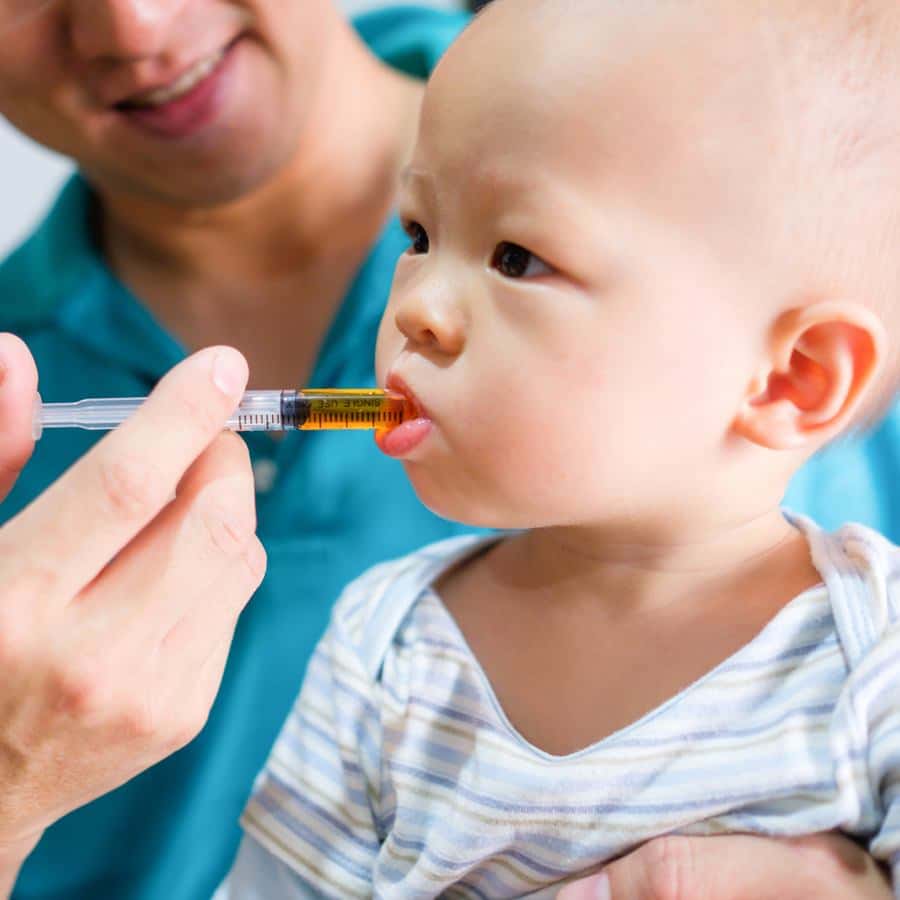
Doctors love proton pump inhibitors (PPIs). Acid suppressing drugs like esomeprazole (Nexium), lansoprazole (Prevacid), omeprazole (Prilosec) and pantoprazole (Protonix) are widely to prescribed to adults as well as kids. With pharmacies recalling another drug for heartburn, ranitidine (Zantac), even more people will be taking PPIs for symptoms of indigestion and reflux. But new risks of PPIs raise questions about long-term safety.
The Latest Risks of PPIs: Infections
Pediatricians are prescribing drugs like omeprazole and pantoprazole more frequently than ever for infants and young children with acid reflux. A new study finds that a common gene variant that determines how well an enzyme metabolizes these drugs can increase the risk of adverse reactions (Pediatrics, online, Nov. 7, 2019).
The enzyme is CYP2C19. In this study of 670 pediatric patients three years old and under, approximately one-third of the babies had a gene variant that allowed them to process the drug very quickly. The remaining two thirds metabolized the drug at normal or slow rates.
When acid is suppressed, bacteria that would normally be killed by stomach acid can get into the body and cause trouble. The normal-to-slow metabolizers were more likely to experience respiratory or gastrointestinal infections while they were taking the drugs. Instead of an average one infection per year, these normal or slow metabolizers had two on average.
Why Care About Risks of PPIs in Children?
An editorial in the same issue of Pediatrics (online, Nov. 7, 2019) points out that even one additional infection annually could be worrisome in medically fragile patients.
The authors note that:
“There have been a number of studies suggesting an association between PPI use and infection, adding to the hypothesis that low gastric pH is protective against infection.”
When the pH of the stomach is low, that means it is highly acidic. That is the natural state of the stomach. PPIs raise pH and make it far less acidic. This in turn allows bacteria, viruses and fungi to escape death by acid.
What About Adults?
There is increasing research suggesting that infections are real risks of PPIs in adults as well as children. There is growing recognition of other adverse effects.
Researchers tracked VA patients who used either proton pump inhibitors or H2 blockers (like cimetidine or famotidine). They followed over 200,000 patients for up to 10 years (BMJ, May 30, 2019).
They put their research into perspective this way:
“PPIs are often used without indication and for much longer than needed. Evidence from the past several years suggests that taking PPIs is associated with serious adverse events including cardiovascular disease, pneumonia, osteoporotic fractures, Clostridium difficile infections, acute kidney injury, chronic kidney disease, dementia, and upper gastrointestinal cancer… Our findings suggest that although PPI use might be associated with many serious adverse events, excess mortality was only mapped to a few specific causes including cardiovascular disease, chronic kidney disease, and upper gastrointestinal cancer. Notably, excess burden was present in those without underlying documented indications for PPI use, that is, patients who may not benefit from PPI exposure.”
That’s doctor talk for: too many people are taking PPIs unnecessarily for far too long. The risks of PPIs are not trivial but excess deaths in this study are “only” linked to heart disease, kidney disease and upper GI cancer. We did not find that particularly reassuring. We completely agree with them about this conclusion, though:
“…PPIs should be used only when medically indicated and for the minimum duration necessary.”
Learn more about the pros and cons of PPIs and other ways to deal with heartburn in our Guide to Digestive Disorders at this link.
Share your own story about PPIs in the comment section below.
Citations
- Bernal, C. J., et al, "CYP2C19 Phenotype and Risk of Proton Pump Inhibitor-Associated Infections," Pediatrics, Nov. 7, 2019, doi: 10.1542/peds.2019-0857
- Xie, Y., et al, "Estimates of all cause mortality and cause specific mortality associated with proton pump inhibitors among US veterans: cohort study," BMJ, May 30, 2019, doi: 10.1136/bmj.l1580

